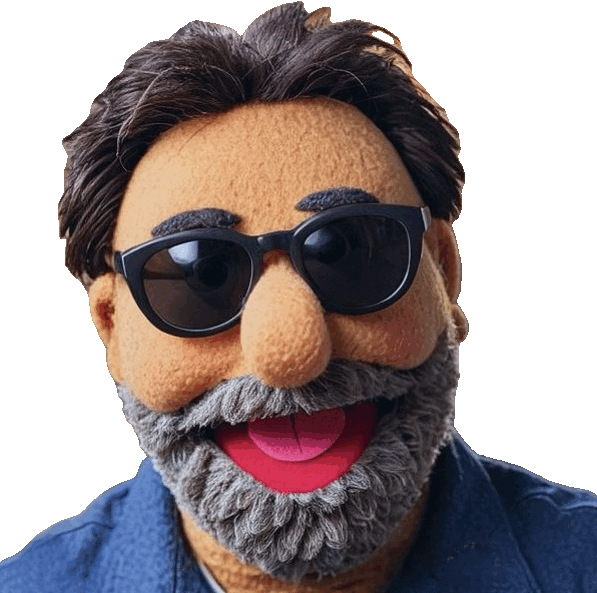I would imagine it was harder to get information on topics as you would’ve had to buy/borrow encyclopedias to do.
Were there proprietary predecessor websites?
Tell me about the dark ages!
One word: Encarta.
This.
“Don’t just copy and paste from Encarta” was commonly recited by my teachers when I was younger
I’m a little bit younger than you, so for me, it was used Wikipedia as a starting source, but do not reference it. Find your own information. We just used Wikipedia to familiarize ourselves with a topic and the terms that we would then have to actually look up and source other sites.
Encyclopædia Britannica also used to have a version released on DVD.
I remember when this came out, blew my mind. 1 cd vs a couple hundred kg worth of huge analogue encyclopaedia books.
The introduction of CD-ROM was mind blowing for me. Encyclopedias, interactive storybooks, talking Carmen Sandiego?!
It felt so futuristic.
Remember the Mindmaze game in Encarta?
Yes! I loved the mind maze. I was never really good at it (English is not my native language), but it was always fun to play.
I would bother my parents afterwards with all the facts I had learned. They were indulging at first, but even the greatest of patience will run out eventually :)
Three thousand this 👆
And before that, Britannica
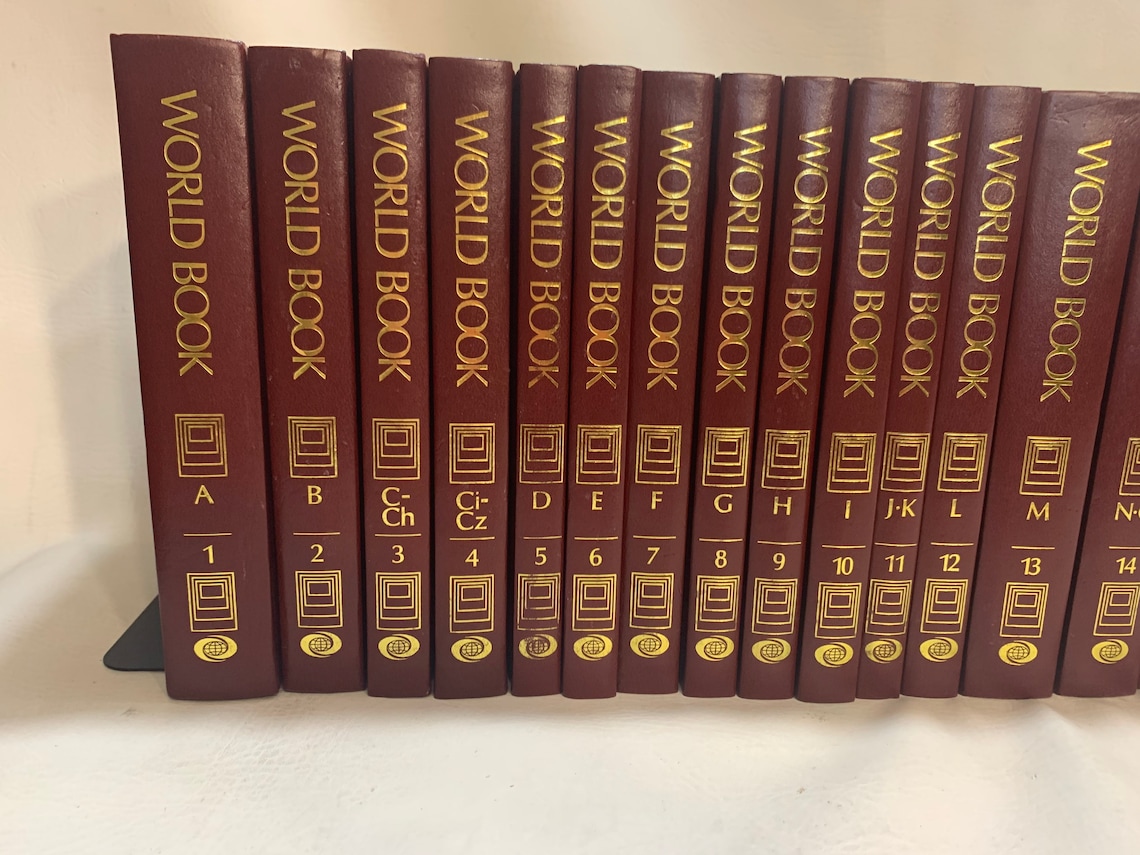
Edit: Apparently you can still order an updated print edition of the World Book Encyclopedia for the low price of $1,259.00.
This refers to Google instead of Wikipedia, but I think this cartoon still applies. 🤣
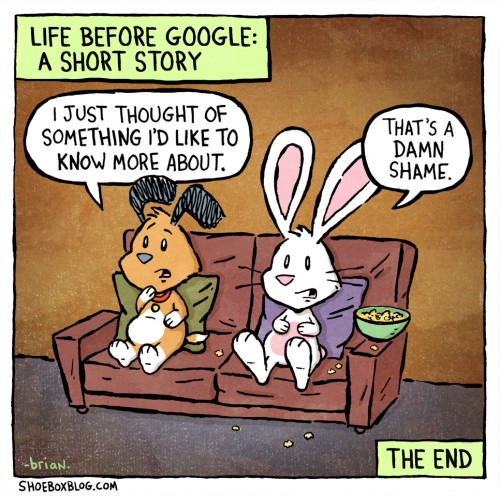
This sums it up. That cool song you would like to know the name or artist? Bad luck if it wasn’t popular. Where does x idiom come from? Wait until you’re at home/the library.
You would have many of these unresolved questions for years, until some solved itself fortuitously.
That cool song you would like to know the name or artist?
You’d ask the guys at the record store, ofc.
I had a particular set of notes stuck in my head for decades. Then one day about 10 years ago I finally managed to remember one of the words of the song, and with that actually managed to google the song. I thought it was something I would never hear again. That song is My Love is Alive by Gary Wright. I remembered the 6 notes in the bass line and that had been driving me nuts for decades.
Arguments at the dinner table were solved by an exasperated FINE, I’ll get up and get the encyclopedia just to prove you wrong
Also, we had Encarta. It wasn’t online, but on a CD-ROM so you could view it digitally compared to the dozens of hefty books
deleted by creator
We didn’t have encarta either. We would break out the encyclopedia
And any school project started with the encyclopedia and then a trip to the library for further research.
When I learned about Wikipedia it was awesome.
We had this thing called a library. With books.
Everybody’s like “Encarta” but before CD-ROMs etc, we had massive ass sets of encyclopedias. You’d actually have an encyclopedia subscription so they could send you errata for stuff that changed over time. Sort of like paper DLC for reality.
It sucked.
But pre-Internet it was fun to sit around and flip through the encyclopedias/dictionaries and read stuff. If you were lucky you’d find something sex-related.
This unlocked a childhood memory! I forgot that my parents once randomly let door to door salemen in to sell us this crazy large set of books. I think my parents were desperate because I was awful at school and somehow thought someone who didn’t try would now do so because I have all the information I needed… I feel bad, but I never used them once, a giant waste of money.
Lol. We had a giant set of kids Britannica’s that my folks got from a door to door salesman. I wonder if that was the primary vector for encyclopedias.
The set I grew up on was https://en.wikipedia.org/wiki/Encyclopædia_Britannica#1974–1994
I enjoy the “firestorm of criticism” bit. And
On 9 March 1976 the US Federal Trade Commission entered an opinion and order enjoining Encyclopædia Britannica, Inc. from using: a) deceptive advertising practices in recruiting sales agents and obtaining sales leads, and b) deceptive sales practices in the door-to-door presentations of its sales agents
Patch notes: USSR removed, balance changes to military stats
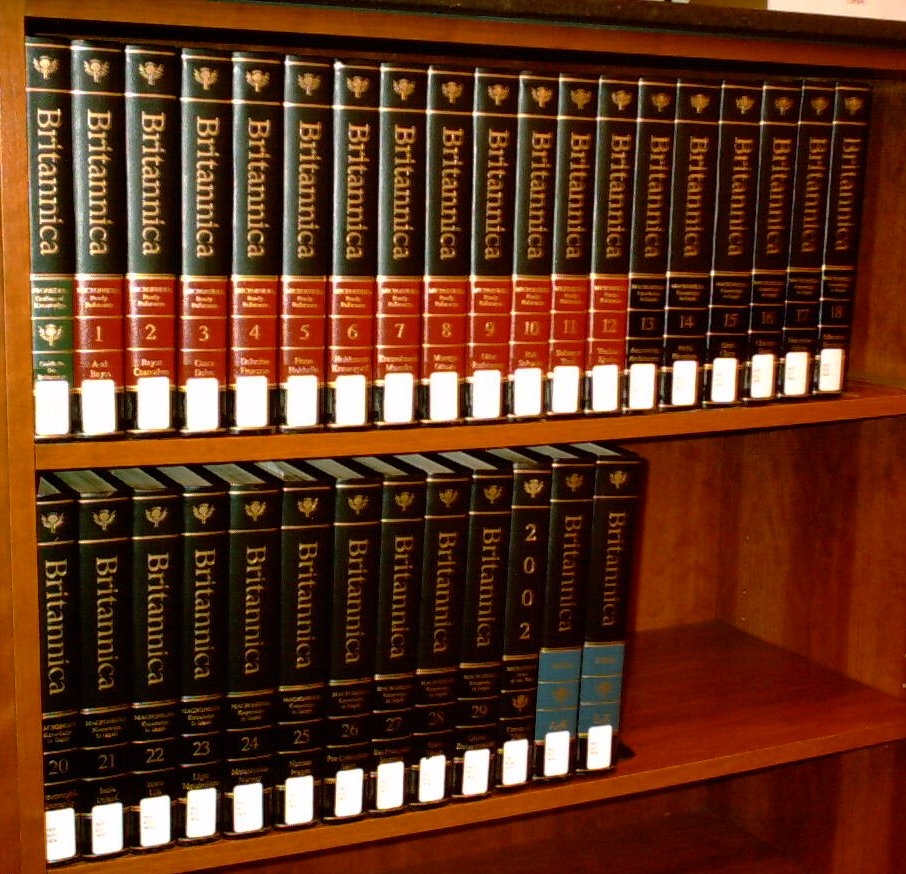
This, but since these were expensive, lots of people bought cheaper, off-brand ones book-by-book at grocery stores over a period of 30+ weeks. We had a set growing up that my mother would pick up at whatever store we were going to, IDK, I was little.
Britannica was for the rich folks… I grew up on World Book!
Just picked the best picture that showed up when I looked up encyclopedia. 🤷♂️
I’m not British, or a native English speaker, so mine really looked more like this:

And we cut a ton of stuff out of them. Only one book report on a given topic or you gotta buy a new set of encyclopedias.
What was life like before encyclopedia?
I’m not that old.
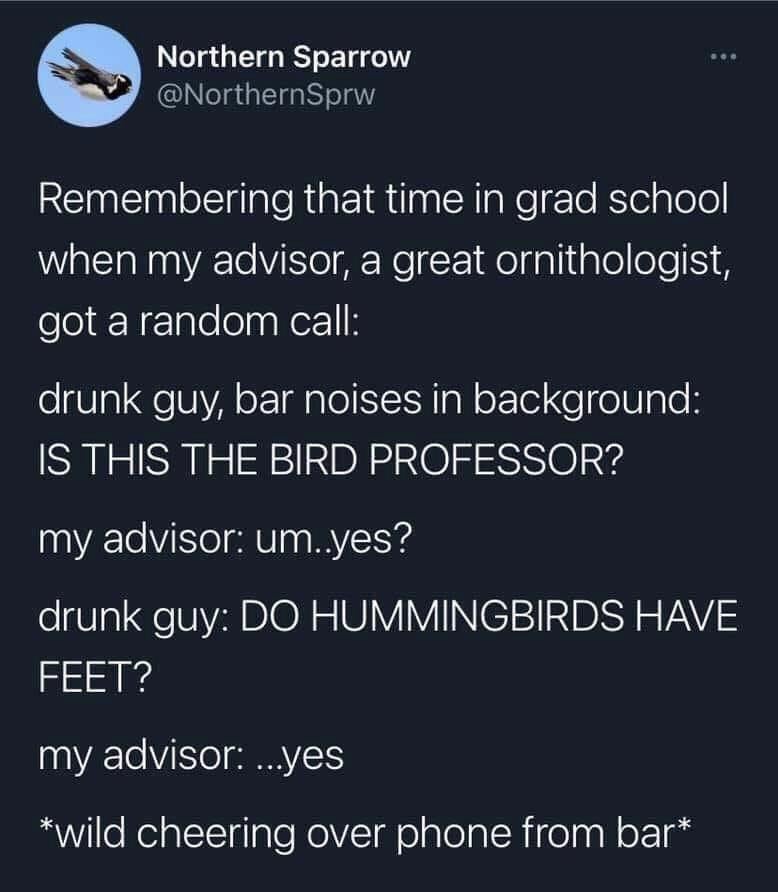
You parents would just tell you something and you assumed it was true until you learned years later they where just winging it with bullshit.
You could argue about who was right about some obscure fact all night long, or come up with your own creative theories.
Nowadays, in less than a minute, someone will look it up, killing the conversation.I had a friend who would just make shit up to try to win arguments.
Hi, it’s me, your friend.
Now you’re just making shit up.
You say that like it’s a bad thing but I LOVE to kill conversations with citations. “Here’s an article from the 90s where Trump talks up Epstein. Sounds like they were buds after all!”
My father and his wife still do this. I enjoy letting them bicker about dumb shit for five minutes before pulling out my phone and saying “OK, Google…” so they can hear the results and then get mad at each other and the internet for the answer.
Before that, you had to get your Encyclopedia on a CD. Encarta '98 was the shit. Some of the articles had pictures and even video clips! At 320x240 resolution and 15 FPS, but my laptop was playing real video, like a TV! It was mind-blowing shit. I watched the video clip of a earthquake in Kobe, Japan over and over again. If I remember correctly, there was actually a second video of people white-water rafting. Two whole videos, that I could play on my computer. Those were the days…
So you wanna play some basketball?
My school in the 90s had to ban watching the Encarta Basketball video. We’re in the UK and don’t really have much of a basketball culture but students flocked to the computer room every day to watch it because of the novelty of seeing a video play on a computer monitor.
I also think I remember the earthquake video, I think Encarta 95 had about 6 videos…
AHH Encarta and the mind maze
IIRC it also had a clip of the Apollo 11 launch and moon landing. Amazing stuff.
I also learned a ton about different instruments by playing that interactive game where you match them to their countries. Thanks to Encarta I was probably in the privileged minority of American 8 year olds that knew what the heck a digerido, pan flute, or sitar was! :D
In the long-long-ago, encyclopaedias were on paper, 28 volumes, and weighed 14kg. Quite comprehensive.
Then encyclopaedias were on a CD or two, around 100g.
Before Wikipedia, everything2 was a previous example of a massively-interlinked-website. You could search and maybe turn up some details.
Or prior to google being created, you would just do a search in metacrawler.com to usually turn up some OK answers.
Metacrawler takes me back, as well as having to use paper encyclopaedias for school!
In the long, long ago times we had these things called libraries where books were checked out and accessible by using a card. Finding out factual information could take a bit of time depending on how obscure it was, but librarians were very helpful in finding things.
Otherwise stuff was mostly passed on by word of mouth and people tended to believe whoever said stuff with the most confidence. So like today’s social media, but slower and mostly in person.
It’s surreal to me that there are people who don’t know what life before Wikipedia was like, lol.
Maybe it’s relevant to understand that the increased access to information hasn’t always translated to people being more informed. There are many people in my life who don’t actively look things up and who don’t have the curiosity or willingness to even check Wikipedia.
So it is still now a bit like what it was like pre-Wikipedia - people mostly relied on other people for knowledge, and knowledge was thus local and socially shared, not necessarily that factual or based in books. I still think this is the dominant way people live, but now social media is an extension of that “local” socially-mediated knowledge. TV and radio were sorta like social media before, it was the way things became “viral”.
I think now like then, looking something up on Wikipedia sets you apart from a lot of people, it makes you bookish, nerdy, or pedantic - as if the folk knowledge wasn’t good enough for you and you have become a traitor to your people by seeking something more from the stacks.
search engines and before that software encyclopedias and before that physical encyclopedias.
also libraries and they usually did not allow encyclopedias to be loaned out so that they were always available to people doing research. there was a section of books like that which were on site only use.
@Sunshine@lemmy.ca
Encarta. And something I can’t remember the name of that had a man’s bald head with grey hair on the sides…
Physical held the least amount of info (you probably weren’t going to find much). Software like encarta was cool - had lots of info. But in the days of dinosaurs libraries was where it was at. It was common to ask an adult a question and you get either “I don’t know” or some BS that you believed was true (but wasn’t).
If you really wanted to know, you’d ask the librarian at school or at your towns public library and they’d help you find a book on that topic. Libraries were magical places - even for the people who were too cool to admit it.
oh yeah and not just for information. Before lotr no media could beat a good book.
Libraries are still great.






